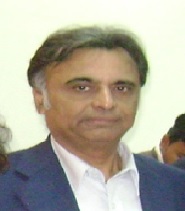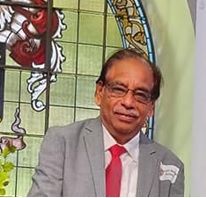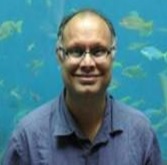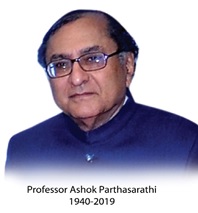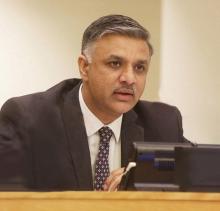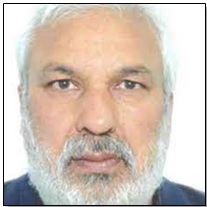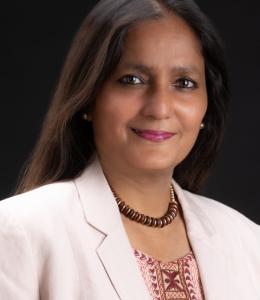Former Faculty Members of CSSP
|
|
Professor Pranav N. Desai served the Centre as a Professor and the Chairperson from April 1997 till June 2017. He was engaged in teaching analysis in science and technology policy and technology futures analysis. He received his PhD in science policy studies in 1985 from JNU. He had conducted research in diverse areas of science policy, including emerging technologies, intellectual property rights, energy and environment-related issues. He specialises in science, technology, and international affairs. Some of his publications include Science, Technology and International Cooperation (1997), and Science, Technology, Coastal Zone Management and Policy (2003). He was the founder Director of the JNU-STEPS Centre South Asia Sustainability Hub and Knowledge Network, and Transdisciplinary Research Cluster on Sustainability Studies (JNU TRCSS). |
|
|
Professor V. V. Krishna served the Centre as a Professor in Science Policy and the Chairperson from September 1997 till August 2016. He obtained PhD from the University of Wollongong, Australia and had more than 30 years of research, teaching and consultancy experience in science and technology policy studies, history and sociology of science and technology, innovation studies and science, technology and developing world in leading academic and research institutions in India, Australia, Singapore, China and Canada. He held visiting faculty positions at the National University of Singapore; McGill University, Montreal, Canada; Maison des Science De l Homme, Paris; United Nations University, Japan; Western Sydney University, Sydney and Tsinghua University, Beijing. Over the years, he published over 40 papers and five books which include: Science, Technology and Diffusion of Knowledge: Innovation Systems in Asia-Pacific (Edward Elgar 2007); Scientific Communities in the Developing Countries (Sage 1997). His latest book is on Universities in the National Innovation Systems: Experiences from Asia Pacific (Routledge 2017) He is Editor-in-Chief of ranked international journal Science, Technology and Society (Sage). He was member of various expert committees and been consultant at UNESCO, OECD, ILO and other international agencies. He contributed to World Science Report 1998 and UNESCO Science Report 2005, and to the ILO in 2001 for its programme on the informal sector. He served as expert on European Research Council’s Grand Challenges and European Union, Brussels, based networks on research and innovation policies since 1990s. He is currently Professorial Fellow, FASS at the University of New South Wales, Sydney, Australia. Web of Science Profile. Scopus Profile.
|
|
|
Dr. Rohan D’Souza served the Centre as an Assistant Professor from September 2003 till March 2015. He is the author of Drowned and Dammed: Colonial Capitalism and Flood control in Eastern India (2006). His edited books include The British Empire and the Natural World: Environmental Encounters in South Asia (2011), and Environment, Technology and Development: Critical and Subversive Essays (2012). He had held postdoctoral fellowships at Yale University and the University of California, Berkeley. He was also a Senior Research Associate at the Centre for World Environmental History (University of Sussex) and Visiting Fellow at the Resources Management Asia-Pacific (Australian National University). He is presently an Associate Professor at the Graduate School of Asian and African Area Studies, in University of Tokyo, Japan. |
|
|
Prof. Ashok Parthasarathi (b. 1940 – d. 2019) served the Centre as a Professor from February 2000 till July 2005. He served as a Chairperson of the Centre from 15th August 2000 to 31st July 2002. He was physicist and electronics engineer and a leading S&T policymaker, planner and analyst. He had a Master's Degree in Radio Astronomy from the University of Cambridge in the UK and had worked on S&T policy research at MIT, USA. He was Special Assistant for S&T in the PMO of the late Prime Minister Indira Gandhi over 1970-75, a position no one had held either before or after him. His commitments to the promotion of S&T and their applications to the development of security of the nation have been acknowledged by many and have led him to hold important positions in the Government of India – former Secretary in the Department of Scientific and Industrial Research (DSIR), the Department of Electronics (DoE) and the Ministry of New and Renewable Energy (MNRE). Prof. Parthasarathi was widely known internationally. He had participated in major UN S&T-related Conferences (of UNCTAD, UNIDO, UNESCO, UNESCAP and WIPO) as the Government of India representative, and undertaken several studies for a number of UN Agencies on various S&T policy planning and management issues. He was a member of the Research Advisory Committee of the Planning Commission and of the “High-level National Task Force on the Development of India as a Knowledge Society” chaired by the Deputy Chairman, Planning Commission. He was also the first Indian to be elected as a Member of the Governing Board of The South Centre in Geneva, set up by the late Julius Nyerere, Founder President of Tanzania. He had published over 100 papers (including media articles) on issues of S&T policy, planning and management; prepared major reports on transfer of technology and technology policy for UNCTAD in Geneva and ESCAP in Bangkok. He was involved in establishment of different public sector companies in electronics sector making hi-tech electronic products ranging from microchips to optic-fibre and satellite-based communication systems. Prof. Parthasarathi's contribution to the development of the defence electronics sector had been widely acknowledged as had been his contribution to solar electric systems. He died on 12th August 2019, at the age of 79 years. Some of the important books written or edited by him include: Technology at the Core: Science and Technology with Indira Gandhi (2010); GP: 1912-1995 (2018); Pugwash on Self-reliance (1977); Scientific Cooperation for Development: Search for New Directions (1980). There is a Festschrift volume published in honor of him titled A Lifetime of Moulding Technology and Science Policy in India: A Festschrift in Honour of Professor Ashok Parthasarathi (2017).
|
|
Prof. A. Vasantha |
Prof. A. Vasantha served the Centre as a Professor. Her research interests include: history of science and technology in India; science policy studies, besides other topics. She wrote a number of papers and book chapters on science policy issues and compiled a Biographical Dictionary of Scientists of India, 1800-1900. She supervised a number of PhD and M.Phil. scholars at the Centre.
|
|
Prof. B.V. Rangarao |
Prof. B.V. Rangarao taught at the Centre, and served as Chairperson. His research interests include: science policy studies, besides other topics. He wrote a number of papers and book chapters on science policy issues. He was a regular contributor to the Economic & Political Weekly. He contributed two books, namely Social Perspective of Development of Science and Technology in India (1982), and Scientific Research in India: An Analysis of Publications (1969). He supervised a number of PhD and M.Phil. scholars at the Centre.
|
|
Prof. Dhirendra Sharma
|
Prof. Dhirendra Sharma (b. 07 June 1932, d. 20 June 2024) taught at the Centre, and served as Chairperson. He was a voice of Resistance from his days in the US, where he taught Philosophy and Asian Studies at the Michigan State University (1965-1971). While in the US he played a leading role in the anti-Vietnam War movement. During 1975 -1977, he was actively involved with the resistance movement against Emergency. He wrote five books titled "India's Nuclear Estate" (1983), "The Indian Atom: Power & Proliferation - a Documentary History of Nuclear Policies, Development, and the Critics, 1958-1986", "The Janata (People's) Struggle: The Finest Hour of the Indian People (with Underground Documents, Resistance Literature and Correspondence Relating to Advent of Janata Party)" (1977), "The American Empire Building: A Challenge to New World Order - a Documentary History of Imperial Expansion of the United States and the Critics, 1776-1991 (the Gulf War) (1991), "The Differentiation Theory of Meaning in Indian Logic" (1969), besides other publications. |
|
|
Visiting Scholars/ Visiting Fellows/ Visiting Professors
|
|
|
Dr. Mathieu Quet served the Centre as a Visiting Fellow from May 2015 till April 2019. He is a research fellow at Institut de Recherche pour le Développement in France. His research focuses upon pharmaceutical flows between India and Kenya and upon the securitization of pharmaceutical markets in a context of shifting industrial geographies. More broadly, his research has been covering issues in social studies of science and technology, analysing the entanglements of technology, politics and society. |
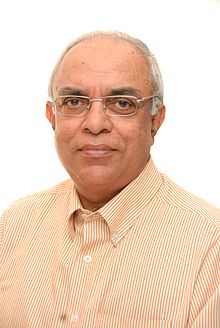 |
Prof. Jayanta Bandyapodhyay served the Centre as a Visiting Professor from January 2015 till December 2015. He was a Professor at Indian Institute of Management Calcutta (IIMC) during 1997-2012, and established the Centre for Development and Environment Policy at IIMC. He is now a Distinguished Fellow at the Observer Research Foundation, Kolkata. |
|
|
Prof. Sujit Bhattacharya served the Centre as a Visiting Professor from August 2007 till August 2009. He is presently working as a Chief Scientist in the CSIR-NIScPR (earlier known as CSIR-NISTADS) and also a Professor in the Academy of Scientific and Innovative Research (AcSIR). He serves as the Editor-in-Chief of the Journal of Scientometric Research (indexed with the Scopus, ESCI, and Dimensions). Some his notable publications include: Policy Perspective on Innovation and Sustainable Development (2017), India Science Report, Volume III (2015), CEFIPRA 25 Years: Strengthen Scientific Competence & Enable Industrial Competitiveness of Indo-French S&T Ecosystem (2014), India Science Report, Volume II (2013), Indian Patenting Activity in International and Domestic Patent System: Contemporary Scenario (2006), Emerging Trends in Scientometrics (1999), Advanced Telecommunications in India: Regulation and Strategy (1996). He was awarded PhD from Indian Institute of Technology Delhi.
|
|
|
Prof. Sachin Chaturvedi served the Centre as a Visiting Professor from January 2011 till December 2012. He is currently Director General at the Research and Information System for Developing Countries (RIS), a New Delhi-based Think-Tank. He works on issues related to development economics, involving development finance, SDGs and South-South Cooperation, apart from trade, investment and innovation linkages with special focus on WTO. Currently, he is also Vice Chairman, Atal Bihari Vajpayee Institute of Good Governance and Policy Analysis; and ex-officio Vice Chairman of Madhya Pradesh State Policy and Planning Commission. He is also Member, Board of Governors, Reserve Bank of India. He has been part of several important initiatives of the Government of India and takes keen interest in transforming economic policymaking towards integrated and evidence based approaches. He is one of the foremost commentators on India’s external sector economic engagements and partnerships. He has authored/edited more than 22 books, apart from contributing several chapters in the edited volumes and also publishing several research articles in prestigious journals. He is on the Editorial Board of several journals including the South Asian Economic Journal, IDS Bulletin, Sussex, UK among others. His book “The Logic of Sharing – Indian Approach to South-South Cooperation” has been acclaimed internationally as one of the best volumes on international development cooperation. He was also the ‘Global Justice Fellow’ at the MacMillan Center for International Affairs at Yale University (2009-2010) and has served as a Developing Country Fellow at the University of Amsterdam (1996), Visiting Fellow at the Indian Institute of Advanced Studies, Shimla (2003), and Visiting Scholar at the German Development Institute (2007). |
|
|
Prof. Dinesh K Abrol served the Centre as a Visiting Professor from July 2013 till May 2015. He earlier worked as a Chief Scientist in the CSIR-NISTADS, and also as a Professor in the Institute for Studies in Industrial Development, New Delhi. He is currently associated with the Transdisciplinary Research Cluster on Sustainability Studies (JNU-TRCSS)
|
|
|
Dr. Malti Goel served the Centre as a CSIR Emeritus Scientist from August 2009 till March 2013 with the project titled "Clean Energy in India: R&D Challenges and Opportunities". She is Former Adviser, DST, in the Ministry of Science & Technology, Government of India and is a climate change expert.
|
|
|
Prof. K.J. Joseph served the Centre as a Visiting Professor from January 2001 till July 2003. He had been a Post-Doctoral Researcher at the Economic Growth Center, Yale University. He is presently a Professor at Centre for Development Studies, Trivandrum, India. His publications include: "Industry under Economic Liberalization: The Case of Indian Electronics", Sage Publications, 1997; "Information Technology, Innovation System and Trade Regime in Developing Countries: India and the ASEAN", Palgrave Macmillan, 2006; "Growth of ICT and ICT for Development: Realities of the Myths of the Indian Experience", United Nations University, 2002. He was a professor in the Centre for Development Studies (CDS), Thiruvananthapuram, Kerala, and presently working as Director of the Gulati Institute of Finance and Taxation, Kerala. |
|
|
Prof. Nasir Tyabji served the Centre as a Senior Fellow (Research) from October 2000 till April 2005. Previously he held the Reserve Bank of India chair Professorship (1990-1994), and a Fellowship at the Madras Institute of Development Studies (1982-1990). Dr. Tyabji worked with the Indian Institute of Public Administration (1973-1980), Administrative Staff College of India (1980-82), and Nehru Memorial Museum and Library (1994-1999). He was educated at the Institute of Science, Mumbai (Mathematics and Physics), New College, Oxford (Engineering Science and Economics), and Jawaharlal Nehru University (PhD). He had written three books titled: "Small Industries Policy in India", Oxford University Press, 1997; "Colonialism, Chemical Technology and Industry in Southern India", Oxford University Press, 1995; "Industrialisation and Innovation: The Indian Experience", Sage, 2000. |
|
|
Prof. Poonam Bala served the Centre as a Visiting Professor from November 2014 till November 2015. Some of her notable publications include: Learning from Empire: Medicine, Knowledge and Transfers under Portuguese Rule (2019), Medicine and colonialism: Historical perspectives in India and South Africa (2015), Contesting Colonial Authority: Medicine and Indigenous Responses in Nineteenth-and Twentieth-century India (2012), Medicine and medical policies in India: Social and historical perspectives (2007). |
|
|
Prof. Mammo Muchie served the Centre as a Visiting Fellow from February 2016 till March 2016. He is a scientific Board member of Globelics and the Globelics Doctoral Academy. He is the founder as Chief Editor of the African Journal on Science, Technology, Innovation and Development that has been running since 2009. |
